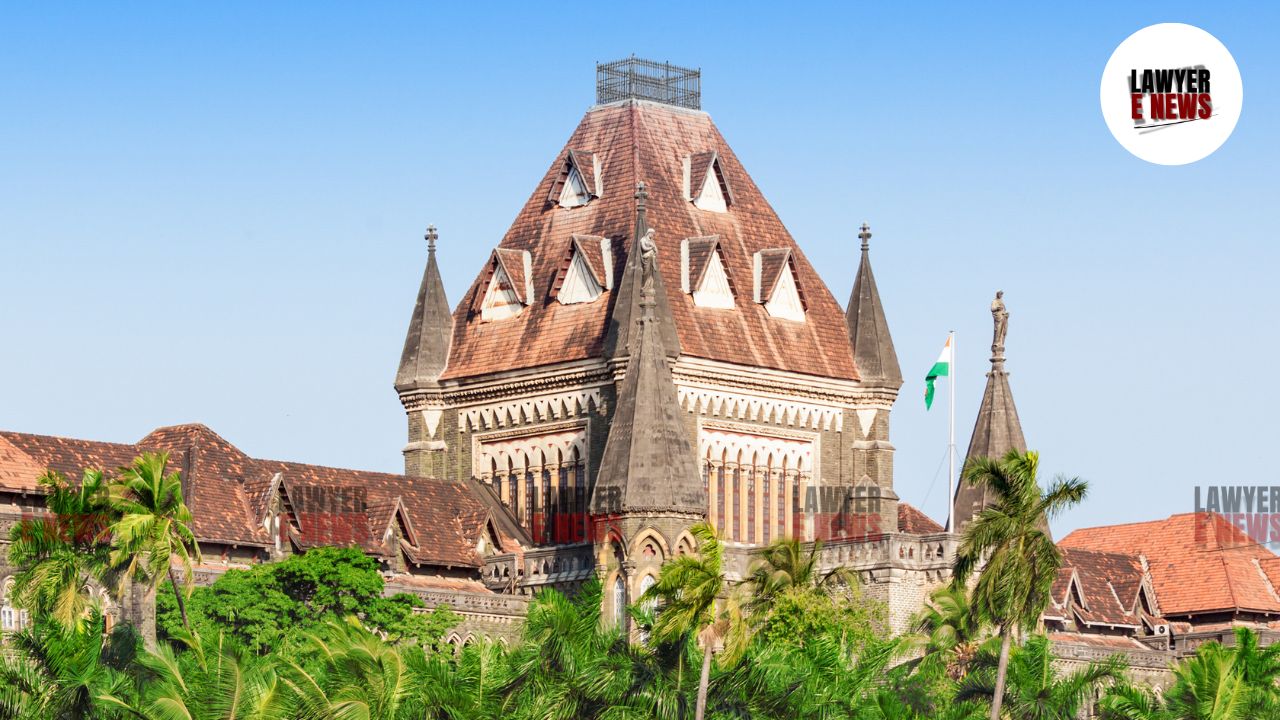-
by Admin
15 February 2026 5:35 AM



In a notable judgment Bombay High Court invalidated the resignation of Shri Sudhakar Yashwant Warule, Upa-Sarpanch of Gram Panchayat, Rasegaon, Nashik district, citing non-compliance with mandatory procedures under the Maharashtra Village Panchayats Act, 1959, and associated Resignation Rules of 1965. The Court ruled that the resignation had not taken effect, and the Petitioner must be reinstated to his elected position.
The judgment strongly emphasizes strict adherence to statutory requirements, particularly when the resignation of an elected representative is contested. The Additional Collector and Divisional Commissioner’s orders rejecting the Petitioner’s challenge to the resignation were set aside, with the Court labeling them "perverse" and based on non-application of mind.
"Absence of Form II Acknowledgment Renders the Resignation Void"
The Court found a glaring procedural flaw in the resignation process—failure to issue the mandatory acknowledgment in Form II under Rule 3(3) of the Bombay Village Panchayat (Delivery of Notice of Resignation) Rules, 1965. Justice Marne observed:
"The acknowledgment in Form II is a mandatory requirement under Rule 3(3). The absence of such acknowledgment is fatal to the resignation’s validity, particularly when the resignation is disputed by the elected representative." [Para 17]
The Court noted that neither the Gram Sevak, the Sarpanch, nor any Respondent produced evidence to show that the resignation letter had been acknowledged in Form II. This procedural lapse alone, the Court held, was sufficient to invalidate the resignation process.
"Strict Compliance Is Essential to Protect Democratic Principles"
Justice Marne underscored the importance of strict adherence to procedural requirements when dealing with the resignation of elected representatives:
"Acceptance of resignation without adhering to statutory procedures unseats a democratically elected representative, which warrants strict judicial scrutiny. Even a single flaw in following mandatory provisions renders the resignation process invalid." [Paras 24-25]
The judgment referenced the principle established in Taylor v. Taylor (1875) and reaffirmed by the Supreme Court in State of U.P. v. Singhara Singh (1964):
"Where a statute prescribes a specific procedure for performing an act, it must be followed strictly, and other methods of performance are necessarily forbidden." [Para 24]
The Court observed that provisions such as Section 34 of the Maharashtra Village Panchayats Act and Rule 3 of the Resignation Rules are mandatory because they protect the democratic rights of elected representatives.
The Petitioner, Shri Sudhakar Yashwant Warule, denied ever tendering his resignation and alleged that his signature on the resignation letter was forged. The resignation letter, dated November 10, 2023, was presented during the Gram Panchayat meeting on November 29, 2023, in the Petitioner’s absence.
The Court noted the following irregularities in the resignation process:
Failure to Identify the Person Who Received the Resignation:
The meeting minutes and the Gram Sevak’s report were silent about who accepted the resignation letter or whether it was delivered to the Sarpanch as mandated by Section 34(2).
Conflict of Interest of Witnesses:
The resignation letter was allegedly witnessed by two members of the Panchayat, one of whom, Shri Santosh Shankar Salve, was a candidate for the post of Upa-Sarpanch. Justice Marne remarked that this raised questions about the impartiality of the resignation process.
Discrepancies in the Petitioner’s Signature:
The Petitioner presented multiple documents showing significant differences between his usual signature and the signature on the resignation letter. The Court found this relevant but ultimately concluded that procedural lapses alone rendered the resignation invalid.
Collector and Divisional Commissioner Failed to Conduct Proper Inquiry
Justice Marne criticized the Additional Collector and the Divisional Commissioner for their lack of inquiry into whether the resignation was submitted and processed in compliance with statutory provisions:
"The Collector and the Divisional Commissioner failed to apply their mind to the aspect of procedural compliance. Both relied solely on the statements of witnesses without conducting an inquiry into the manner of tendering and
acknowledgment of the resignation." [Para 31]
The Court further observed that merely finding that the resignation letter was signed by the Petitioner was insufficient:
"The question is not only whether the resignation letter was signed, but whether it was tendered in strict compliance with the provisions of the Act and the Rules. Mere finding of signature does not ipso facto validate the resignation." [Para 31]
"Right to Hold Elected Office Cannot Be Sacrificed at the Altar of Procedural Lapses"
The Court reiterated that the resignation of an elected representative has drastic consequences, making it imperative to follow the prescribed statutory procedure:
"Unseating a democratically elected representative without strict adherence to the statutory process cannot be permitted. The mandatory nature of Sections 29 and 34 of the Village Panchayats Act and Rule 3 of the Resignation Rules leaves no room for deviations." [Para 25]
The Court cited its earlier judgment in Janardhan v. State of Maharashtra, where it was held that "strict compliance with the procedure for resignation is necessary when the elected representative disputes the resignation."
The Bombay High Court allowed the Writ Petition, setting aside the orders of the Additional Collector (dated October 24, 2024) and the Divisional Commissioner (dated December 10, 2024). The Court directed:
"The resignation of the Petitioner has not taken effect due to failure to comply with mandatory procedural requirements. The Petitioner continues to hold the position of Upa-Sarpanch of Gram Panchayat, Rasegaon." [Para 32]
The Court further emphasized that its observations were limited to the issue of procedural compliance and did not delve into other factual disputes raised by the parties.
The judgment reinforces the principle that elected representatives cannot be removed without strict compliance with statutory requirements. By invalidating the resignation due to procedural lapses, the Court has upheld democratic principles and ensured fairness in governance. The decision serves as a reminder that "strict compliance with statutory provisions is the cornerstone of preserving the integrity of democratic institutions." [Para 25]
Date of Decision: 22/01/2025
